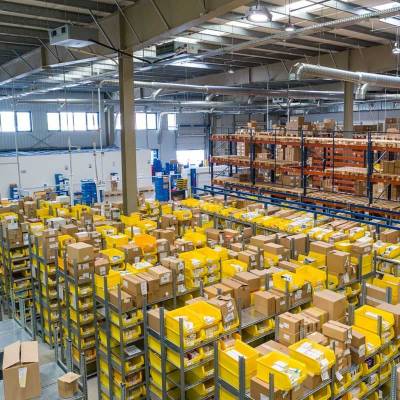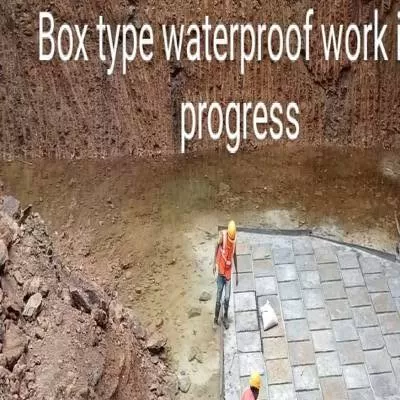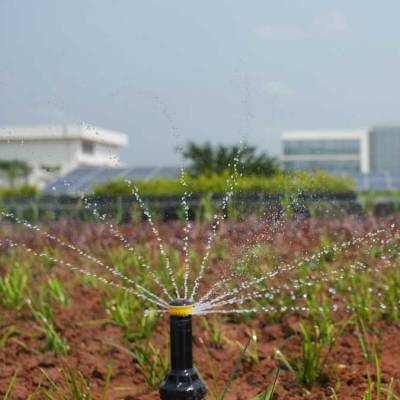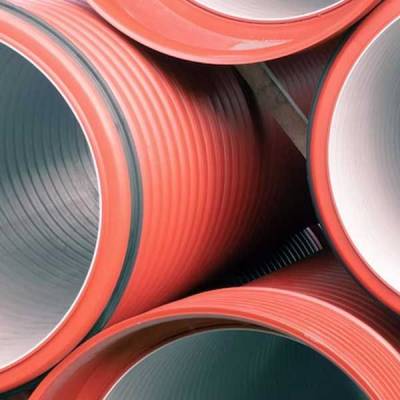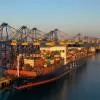- Home
- Infrastructure Urban
- WATER & WASTE
- Water - Going with the Flow

Water - Going with the Flow
All industries that draw groundwater for their operations will now have to take a no-objection certificate (NOC) from the Central Ground Water Authority (CGWA) to extract groundwater. The CGWA has revised its 2012 guidelines on ¨evaluation of proposals for groundwater extraction¨ recently that, if enforced, could affect water-intensive industries like mineral water bottling plants or major tanker businesses operating in water-scarce or over-exploited zones. The new guidelines will ensure that several industries dependent on groundwater in severely parched parts of Uttar Pradesh, Haryana, Rajasthan and other states will be asked to reuse recycled wastewater instead of groundwater, depending on the groundwater table in their area. The Pollution Control Board has also asked for industries in certain categories to go for zero-liquid discharge (ZLD) systems, or else risk being asked to close down their operations. Textile industries in Haryana have been mandated to go for ZLD solutions. This is creating opportunities for solution providers in wastewater recycling, evaporation and water conservation.
Opportunities abound
Seawater desalination promises to offer solutions for water scarcity in the coastal areas. Tamil Nadu is planning to come up with large desalination plants in Chennai, as well as Ramanathapuram and Tuticorin. These plants are likely to be tendered and awarded in 2016, and be accompanied by a number of smaller industrial desalination plants in the power and metal sectors. Largely based on reverse osmosis membrane technology, these plants would reduce the dependence on scarce freshwater sources.
Wastewater recycling is another major area of opportunity. Currently, less than 1 per cent of the total wastewater in India is recycled. But there is increasing pressure on industries like refineries, metals, chemicals, textiles and tanneries to recycle their effluents. Opportunities are being developed where municipal sewage is being treated and supplied to industrial clusters with a PPP model.
Government moves
The Union Government has been driving a few major initiatives creating opportunities in the water sector. One of these is the Smart Cities initiative, where 100 major cities are likely to come up across India with modern water supply and sanitation facilities, creating major opportunities for the sector.
Further, the Ganga river cleaning project is one of the largest environmental engineering projects in the world, and will require a number of sewage recycling, online monitoring and effluent treatment plants along the banks of the river. About 2.9 billion cu m of sewage goes into the river daily, and the Government has announced a spend of $850 million in the next five years to prevent discharge from 118 cities and towns into the river. The Ministry of Drinking Water Supply and Sanitation is also looking at a large number of community drinking water plants in rural areas to ensure safe and clean drinking water in villages. Contaminants like fluoride, arsenic, iron, nitrates and salinity would need to be removed from the groundwater.
Amid all these promising opportunities, the water sector is also grappling with problems related to slow project off-take and liquidity concerns. The sector continues to face high competition from international players and profitability levels are low. There is a shortage of well-trained and skilled manpower in engineering, project execution and operation fields.
With a total market size of about Rs 88,000 crore, the water sector is expected to grow at about 9 per cent this year. Funding from multilateral agencies and the government sector has been slow. Even as the water supply and demand mismatch continues to worsen, this key element of the infrastructure puzzle needs more attention from the government if the new year has to deliver on promises made.
About the Author:
H Subramaniam, COO, Earth Water Group, has over a decade of experience in the Indian water industry.
H SUBRAMANIAM examines the major initiatives that will create promising opportunities in the water sector. All industries that draw groundwater for their operations will now have to take a no-objection certificate (NOC) from the Central Ground Water Authority (CGWA) to extract groundwater. The CGWA has revised its 2012 guidelines on ¨evaluation of proposals for groundwater extraction¨ recently that, if enforced, could affect water-intensive industries like mineral water bottling plants or major tanker businesses operating in water-scarce or over-exploited zones. The new guidelines will ensure that several industries dependent on groundwater in severely parched parts of Uttar Pradesh, Haryana, Rajasthan and other states will be asked to reuse recycled wastewater instead of groundwater, depending on the groundwater table in their area. The Pollution Control Board has also asked for industries in certain categories to go for zero-liquid discharge (ZLD) systems, or else risk being asked to close down their operations. Textile industries in Haryana have been mandated to go for ZLD solutions. This is creating opportunities for solution providers in wastewater recycling, evaporation and water conservation. Opportunities abound Seawater desalination promises to offer solutions for water scarcity in the coastal areas. Tamil Nadu is planning to come up with large desalination plants in Chennai, as well as Ramanathapuram and Tuticorin. These plants are likely to be tendered and awarded in 2016, and be accompanied by a number of smaller industrial desalination plants in the power and metal sectors. Largely based on reverse osmosis membrane technology, these plants would reduce the dependence on scarce freshwater sources. Wastewater recycling is another major area of opportunity. Currently, less than 1 per cent of the total wastewater in India is recycled. But there is increasing pressure on industries like refineries, metals, chemicals, textiles and tanneries to recycle their effluents. Opportunities are being developed where municipal sewage is being treated and supplied to industrial clusters with a PPP model. Government moves The Union Government has been driving a few major initiatives creating opportunities in the water sector. One of these is the Smart Cities initiative, where 100 major cities are likely to come up across India with modern water supply and sanitation facilities, creating major opportunities for the sector. Further, the Ganga river cleaning project is one of the largest environmental engineering projects in the world, and will require a number of sewage recycling, online monitoring and effluent treatment plants along the banks of the river. About 2.9 billion cu m of sewage goes into the river daily, and the Government has announced a spend of $850 million in the next five years to prevent discharge from 118 cities and towns into the river. The Ministry of Drinking Water Supply and Sanitation is also looking at a large number of community drinking water plants in rural areas to ensure safe and clean drinking water in villages. Contaminants like fluoride, arsenic, iron, nitrates and salinity would need to be removed from the groundwater. Amid all these promising opportunities, the water sector is also grappling with problems related to slow project off-take and liquidity concerns. The sector continues to face high competition from international players and profitability levels are low. There is a shortage of well-trained and skilled manpower in engineering, project execution and operation fields. With a total market size of about Rs 88,000 crore, the water sector is expected to grow at about 9 per cent this year. Funding from multilateral agencies and the government sector has been slow. Even as the water supply and demand mismatch continues to worsen, this key element of the infrastructure puzzle needs more attention from the government if the new year has to deliver on promises made. About the Author: H Subramaniam, COO, Earth Water Group, has over a decade of experience in the Indian water industry.


